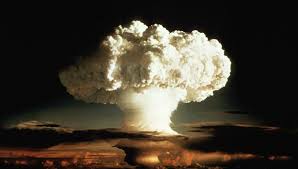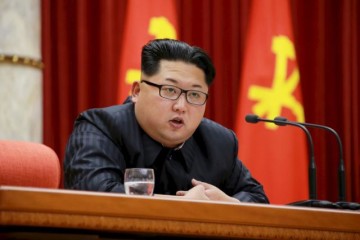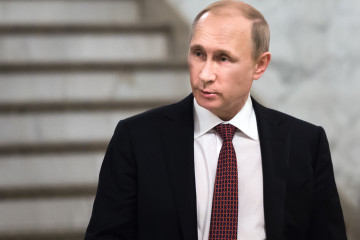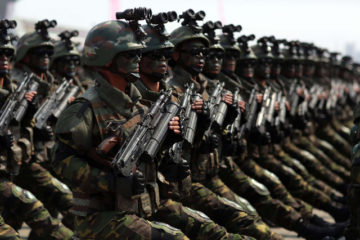Trump Knows Striking North Korea Is Last Resort, McCain Says

(Bloomberg) —President Donald Trump is well aware that a preemptive strike against North Korea must be a last resort, in large part because of the artillery Kim Jong Un’s regime could unleash to devastate South Korea’s capital, Senator John McCain said.
“One of the major reasons is because of that artillery that’s north of Seoul — that is really of concern,” McCain, the Republican chairman of the Senate Armed Services Committee, said Thursday in an interview after the panel heard testimony from Admiral Harry Harris, the chief of the U.S. Pacific Command.
“I know that the president is committed” to “building up this relationship he has” with China’s President Xi Jinping, North Korea’s neighbor and economic lifeline, McCain said.
Trump wrote in a Twitter posting this month that “I have great confidence that China will properly deal with North Korea. If they are unable to do so, the U.S., with its allies, will! U.S.A”
While the Pentagon has dispatched an aircraft carrier group and submarine to the region, McCain said he believes the White House is a long way from directing a military strike. “I hope there’s a lot more to go before we have a preemptive strike,” McCain said. “They are exploring every option and the last option — and the least desirable option — is armed conflict.”
The administration has been placing increased emphasis on diplomatic and economic pressure this week. On Thursday, Trump’s top national security officials issued a joint statement saying the U.S. “seeks stability and the peaceful denuclearization of the Korean peninsula. We remain open to negotiations towards that goal.” That theme will be underscored Friday when Secretary of State Rex Tillerson goes to New York to lead a discussion on North Korea in the United Nations Security Council.
McCain has been critical of Trump on some international issues — especially for his past talk that he could cut deals with Russian President Vladimir Putin — but the Arizona senator has expressed confidence in the former generals who are shaping Trump’s defense policies.
After meeting with Japan’s Prime Minister Shinzo Abe in Moscow on Thursday, Putin said the two leaders believe the situation on the Korean peninsula has “seriously deteriorated.” Putin said, “We call on all states involved in the region’s affairs to refrain from military rhetoric and seek peaceful, constructive dialogue.”
In two days of congressional testimony, Harris walked a line between sending a message that the U.S. may take whatever military action is necessary to prevent North Korea from completing development and deployment of nuclear missiles that could reach the U.S. mainland while not spelling out the “hard power” military options that are under consideration.
Alternatives already provided to the White House “would be effective tonight if called upon to execute,” Harris said.
‘Vast Array’
Harris told the House Armed Services Committee on Wednesday that North Korea’s artillery poses “a very dramatic challenge” to Seoul. One of the world’s most densely populated cities, it lies within range of the Demilitarized Military Zone “and the heights north of the DMZ where Kim Jong Un has a vast array ” of rocket forces and artillery, he said.
U.S. commanders in Korea have said that as many as 250 long-range artillery systems are stationed within 90 kilometers (56 miles) of the DMZ and are capable of striking parts of Seoul.
Still, Stratfor, a private geopolitical analysis firm, said in a recent assessment that “only a small portion — Koksan 170mm self-propelled guns, as well as 240mm and 300mm multiple-launch rocket systems — are capable of actually reaching Seoul.”
“Broadly speaking,” the bulk of North Korea’s artillery “can only reach into the northern border area of South Korea or the northern outskirts of Seoul,” Stratfor’s analysts said.







No Comment